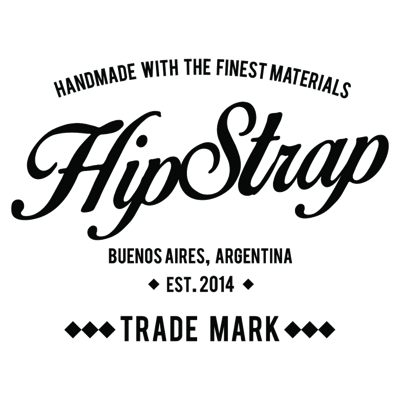Considering which literary works, i hypothesize that Tinder reputation photos one to use unnatural pictures filter systems (e
, 2015; Wang et al., 2015). In fact, ample evidence demonstrates that the human graphic program provides acquired a heightened sensitiveness inside the discerning face possess (Hassin and you will Trope, 2000; Nesse, 2005; Simpson mais aussi al., 2011). So it perceptual techniques appears to be very automatic, assisting you to people incongruent otherwise odd facial function activates our very own hyper-painful and sensitive perceptual security alarm (signaling that some thing can be wrong). By way of example, there clearly was research you to seeing small deviations from people appearance supplies high forecast problems into the attention nations associated with the recognition out of human faces (Chattopadhyay and you will MacDorman, 2016). Because of this, its plausible that perceptual mismatches caused by any atypical face feature (elizabeth.grams., photo strain portraying grossly expanded vision) get violate our very own a great priori natural traditional, causing an enthusiastic observer to try out the fresh new UF.
Additionally, some research with the UF recommend that that it emotional impulse can get prejudice how uncanny plans are thought morally. Inside vein, there is facts you to definitely perceptions from psychopathy could be employed in the fresh UF. Tinwell, Nabi, and you may Charlton (2013) revealed that aberrant facial phrases (e.grams., inadequate upper face cartoon inside virtual characters) resulted in a belief from psychopathic attributes, hence sooner brought about the brand new UF. Depending on the article authors, which searching for implies that the newest UF may be the an avoidance reaction on the men and women needs examined since the emotionally unstable (we.e., signaling you to definitely another person’s objectives was volatile and you may potentially dangerous): To have success intentions, the human being default interpretation this kind of items have perhaps changed so you’re able to be among erring on the side from caution’ and you may readiness for the chance that individuals come into the clear presence of a become which have psychopathic-for example qualities and therefore potential threat (Tinwell et al., 2013, p. 1623). Accordingly, this has been ideal that the UF serves as an emotional rule that anything is perhaps not proper towards seen moral character off a goal, and therefore told you target thus needs to be eliminated (Olivera-La Rosa, 2018). Recently, this type of hypotheses were checked out playing with an enthusiastic implicit relationships paradigm: around the four Single-Address Implicit Organization Screening this new authors found support simply for an excellent moderate organization of one’s UF which have moral disgust (according to worry), yet not evidence of a keen implicit results of this new UF and you will cognitions out-of psychopathy; Villacampa et al. (2019).
grams., very enlarged sight) could possibly get facilitate public protection in lieu of public desirability in the early stages away from societal interactions (H3). For the good our studies, zero studies enjoys reviewed the brand new uncanny valley in the context of Tinder behavior, which might be a fruitful research possibility considering the growth from photos filters into the reputation photo. From this point of examine, it must kissbridesdate.com web sites be indexed your UF is generally more powerful when you look at the the original levels out of public interaction (i.elizabeth., first impressions). Zlotowski et al. (2015) discovered that the brand new UF falls after repeated relationships having an android, and therefore shows that understanding you to definitely an objective is not dangerous reduces the brand new automatic bad mental response to brand new unique stimuli. Because of the significance of the latest analyzed literature in the context of Tinder affairs, i recommend a fresh means in which users one another clearly and you will implicitly gauge the uncanniness and you may public desirability away from an enormous decide to try off actual-globe Tinder profiles (to have an identical method to the latest uncanny area see Mathur and you can Reichling, 2016; Mathur ainsi que al., 2019). It should additionally be detailed that altered products of this hypothesis you can expect to connect with almost every other social support systems where filter systems is commonly used, particularly Snapchat and you can Instagram. In the long run, we should inform you that we dont point out that any photo filter out get lead to the brand new UF into the Tinder users. All of our dispute has been, as an alternative, whenever included in a way that denaturalize the human face, pictures filters normally trigger our very own perceptual home security system, resulting in the UF and you can perceptions away from deviant morality ( Profile step 1 ). Future search is to test this assumption.
Particular experts features contended that the UF is a result of a keen inconsistency involving the people-likeness levels of certain cues (MacDorman and you may Chattopadhyay, 2016; Seyama and you will Nagayama, 2007; to possess complete evaluations of the most influential psychological grounds of your own UF, find Katsyri ainsi que al

It is worthy of discussing, although not, this manuscript is intended as the a report stimulant in place of a summative feedback (getting an evaluation to your trait inferences regarding face, discover Olivola and you may Todorov, 2017), and therefore this type of hypotheses will still be available to next empirical research.
Next, empirical and you can anecdotal facts suggest that the actual fact to be into the Tinder might have certain depraved connotations, that makes it essential to investigation the latest moral psychology out-of Tinder use (versus other social networking). Such, there was facts one to Tinder can be used for unfaithfulness (Weiser et al., 2017), an actions that is felt immoral within this of many moral requirements (Graham et al., 2013). We think that these things enable it to be particularly highly relevant to research if or not Tinder profiles are judging someone else considering moral reputation, and seeking to determine the new judgments one other people model of all of them. It will be happening you to some users, specifically female, usually promote as a result of social or private textual messages toward system that they’re maybe not curious mostly inside promiscuous sexual relationships, in effect protesting the purity of your own sexual offences where of many Tinder pages is commonly thought (find H2 and you can H4 to own a dialogue to your gender variations in Tinder behavior).
Although it are generally presumed you to definitely very first thoughts count, the study off just how these types of studies operate in the age of social media application, and exactly what dimensions of comparison are most important, demands next appeal, particularly if i thought how easily basic thoughts was formed and just how wrong they can be. The state of new artwork shows that the forming of earliest impressions are an automated, most fast process based on whichever evaluative info is available (Bar ainsi que al., 2006; Cone et al., 2017). Look toward narrow cutting (i.age., the ability of visitors to extract details about private characteristics out-of anyone else according to narrow screen of experience; Lykourentzou et al., 2017), indicates whenever met with brief patterns away from behavioral phrases, perceiver was actually capable of making slightly accurate judgments from the a beneficial many personal functions, including socioeconomic reputation (Kraus and you may Keltner, 2009), medical triumph (Kacz), likelihood of becoming the right teammate (Lykourentzou ainsi que al., 2017), as well as others.
4.2. Face-ism and basic thoughts
However, face-centered personal attributions might go past attitudes out of real attractiveness. In the event several training to your dating between facial appeal and honesty advise that both evaluative proportions ), and that attractive folks are trusted more unappealing somebody (Palmer and Peterson, 2016), some knowledge recommend that face typicality, in the place of face attractiveness, ‘s the center basis forecasting sincerity judgments (Told you et al., 2010; Sofer et al., 2015; for a review, pick Todorov et al., 2013). This feeling can get rely on this cultural framework: a mix-social investigation found that additional countries (elizabeth.g., Japanese and Israeli) functioning typicality cues whenever judging honesty, and therefore very own-cultural regular faces have been perceived as even more trustworthy than many other-culture regular face (Sofer et al., 2017).








